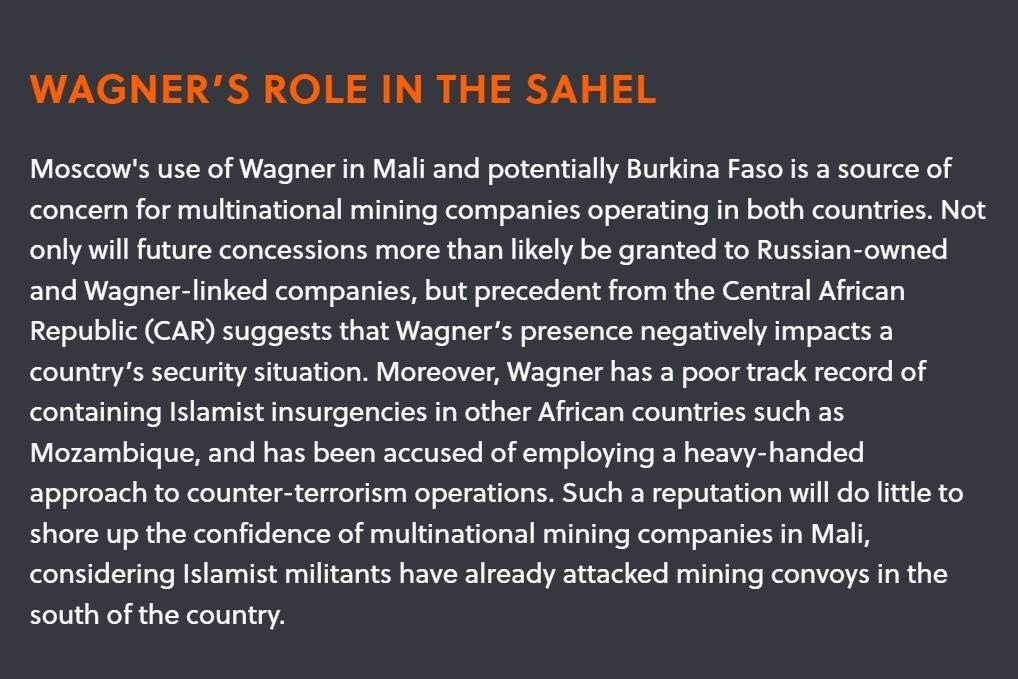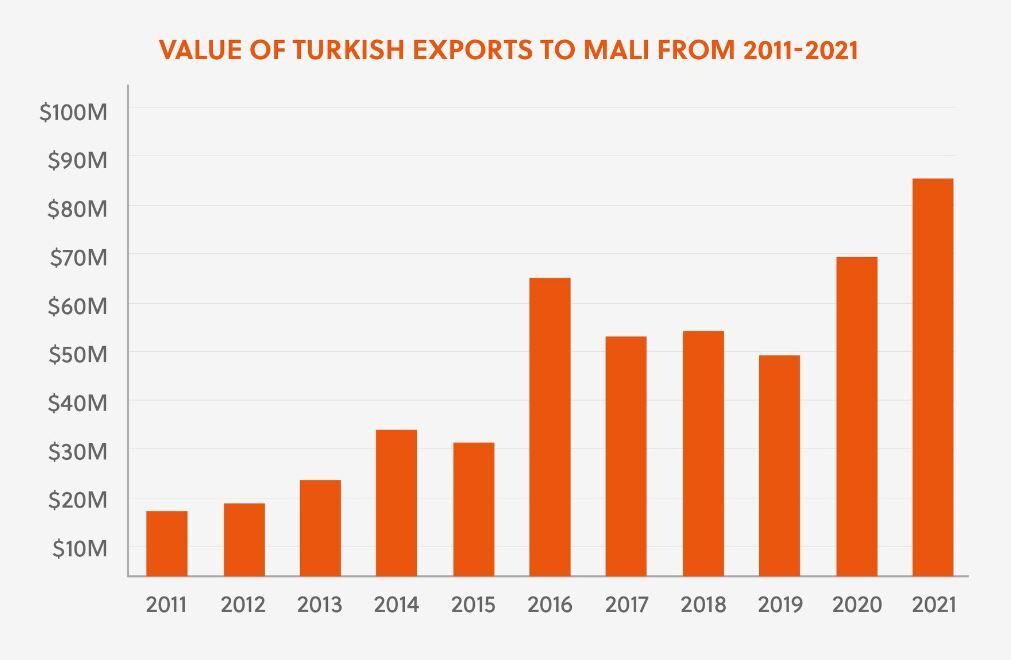France loses its footing in the Sahel
In 2022, a series of anti-France protests erupted across the Sahel. Although France's involvement in West Africa and the Sahel has been a constant for decades, its regional relations have soured significantly in recent years. This year, thousands of people took to the streets in Bamako to celebrate the Malian government’s decision to expel the French ambassador in February 2022, while petrol stations belonging to the French energy company, Total, were vandalised during anti-France demonstrations in Chad in May 2022. The withdrawal of French counter-terrorism forces from Mali in August 2022 highlights that not only have perceptions of France changed in the Sahel, but its presence is no longer welcome. These developments have opened the door for new players looking to expand their political influence and capitalise on the region’s economic potential.
RUSSIA’S NEW FRONTIER
There are clear signs that Russia has an ambitious African agenda, which includes an expanded footprint in the Sahel. Moscow has styled itself as an ally offering military support for governments struggling to contain Islamist insurgencies and rebel movements, which is in stark contrast to China's economic approach of investing in large-scale development projects throughout the continent. For example, while French troops have withdrawn from Mali, personnel employed by the Wagner Group, a Russian private military company (PMC) linked to the Kremlin, have taken their place. Wagner has been contracted by the Malian government to counter Mali’s Islamist insurgency and to bolster the junta’s position, with the expectation that Wagner will gain some access to the country's significant gold fields.
"THE WITHDRAWAL OF FRENCH COUNTER-TERRORISM FORCES FROM MALI IN AUGUST 2022 HIGHLIGHTS THAT NOT ONLY HAVE PERCEPTIONS OF FRANCE CHANGED IN THE SAHEL, BUT ITS PRESENCE IS NO LONGER WELCOME."
Western intelligence agencies have also raised concerns that a burgeoning Islamist militancy and deepening anti-France sentiment in neighbouring Burkina Faso could prompt the Burkinabe government to strike a similar deal with Wagner in due course.

CHINA’S NEW OPPORTUNITIES
The withdrawal of French forces from Mali and the growing number of regional governments seeking relationships with non-France counterparts present additional opportunities for China. An expanded presence in the Sahel offers China the chance to enhance its reputation as a reliable partner for growth and capitalise on the region's natural resources for its expanding technology sector. Beijing has already invested significantly within the Sahel, including the construction of an oil pipeline from Niger to the coast of Benin. Chinese companies have also acquired majority stakes in mines in Chad, Niger and Mali, but France’s weakening presence in the region has left gaps to fill. Following Burkina Faso’s decision to recognise Beijing’s One China policy in 2018, relations between the two countries have improved. Additionally, since the Burkinabe January 2022 coup, which left the country increasingly isolated, the Russian and Chinese governments have offered an alternative for the military junta to address its security needs. Reports indicate that officials from both countries have offered their services to the Burkinabe government to address the country's growing security concerns. Further cooperation between Beijing and Ouagadougou would involve increased investment within Burkina Faso's agriculture and health sectors and eventually an expanded presence within the extractive industry.
TURKEY’S ANTI-COLONIAL APPROACH
Russia and China are not alone in the Sahel, and Turkey has emerged as another stakeholder amid France’s receding involvement. Turkey has sought to foster relations with former French colonies throughout the region, and has capitalised on the anti-colonial rhetoric running through these societies by attempting to build alliances in Muslim-majority countries based on shared Islamic ties. Although Turkish trade with Sahelian countries is still minor compared to China and France – both countries exported over USD 400 million worth of goods to Mali in 2020 – it is growing, with the value of Turkish exports to Mali expanding from USD 5 million in 2003 to USD 87 million in 2021. Ankara has primarily pursued commercial interests in the Sahel, including agreements to conduct mineral research and exploratory activities in Niger. However, it has also increased its military spending within the region, and in 2020 Ankara signed a defence pact with Niamey, raising concerns in Paris that Turkey plans to open a military base in Niger and further establish its presence within the region.
OUT WITH THE OLD AND IN WITH THE NEW
Amid France’s weakening position in the Sahel and numerous security, political and economic challenges to overcome, regional governments have increasingly turned to new allies for assistance. Russia, Turkey and China are willing partners, and their expanding influence has already reaped economic benefits, but there is more to come. The potential business opportunities, vast natural resources and isolated governments looking for assistance mean the Sahel’s new allies can look forward to a wealth of commercial opportunities in the future.

